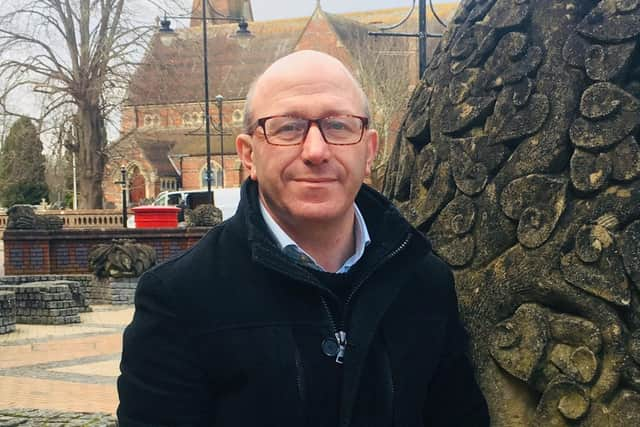Mid Sussex District Council balances budget for 2024/25 - by taking £343,000 from its reserves
and live on Freeview channel 276
The budget was approved during a meeting of the full council on Wednesday (February 28) and included a 2.95 per cent increase in council tax.
The change will see the authority’s portion of the average Band D bill rise by £5.49 to £190.80 for the year.
Advertisement
Hide AdAdvertisement
Hide AdOn top of that, residents will be billed an extra 4.99 per cent by the county council, taking its portion to £1,714.95, with Sussex Police adding an increase of 5.4 per cent, taking the force’s portion to £252.91.


Leader Robert Eggleston said: “Our budget will only balance this year because we’re drawing on unrestricted reserves and benefiting from exceptionally high levels of treasury management income.
“But it’s not possible to do that indefinitely – and ultimately these don’t solve the problem. They buy us time but that is all.”
While the budget may have been balanced for the coming year, the next few years are looking less than rosy.
Advertisement
Hide AdAdvertisement
Hide AdA deficit of £1.517m is forecast for 2025/26, £5.423m for 2026/27, and £5.353m for 2027/28.
Mr Eggleston told the meeting that the council tax increase ‘doesn’t remotely cover inflation and new service obligations’.
He added that raising other fees – such as parking charges – was ‘the only other mechinism’ the council had to start to plug its funding gap after deciding not to cut any services or staffing levels.
The issue of parking charges proved contentious.
The budget included the introduction of evening and weekend charging as well as different fees for different towns, as detailed in the council’s Parking Strategy 2020-2030.
Advertisement
Hide AdAdvertisement
Hide AdThe introduction of charging in the larger villages was held over to 2025/26 to allow further discussion with the parish councils.
Conservative councillors tabled an amendment, suggesting a 10 per cent increase across the board – as opposed to 30 per cent in East Grinstead and 20 per cent in Haywards Heath – with no charging differences between the towns and no charges for evenings, bank holidays or Sundays.
The amendment proposed that the resulting £300,000 shortfall could be met by reducing the food waste general reserve being created in the budget.
While Tory councillors felt they had tabled a ‘common sense’ amendment, Mr Eggleston said it would add to the deficit and make food waste recycling ‘harder and more expensive’ to deliver.
Advertisement
Hide AdAdvertisement
Hide AdHe added: “We need to look at the budget and the corporate plan as a four-year journey not a one-off event.”
The amendment was lost by 17 votes to 27.
The use of reserves was lower than earlier forecast thanks to an extra £196,000 from the government as part of the Local Government Settlement.
But Mr Eggleston reported that the council had had to find £1.7m in extra inflationary costs alone and faced ‘the potential cliff-edge’ of the business rates fair funding review ‘which would reduce our income by an estimated £3.5m each and every year’.
The budget was approved by 27 votes to three, with all but two of the Conservative councillors abstaining.
Advertisement
Hide AdAdvertisement
Hide AdRex Whittaker (Con, East Grinstead Imberhorne) and Mustak Miah (Con, Burgess Hill Dunstall) voted against it, as did Peter Chapman (Burgess Hill Independent, Burgess Hill Victoria).
Referring to the £12m of deficits faced over the coming years, Mr Eggleston said: “We can’t ignore that financial challenge, we can’t retreat from it.
“We must face it and solve it together.”
While disappointed that the amendment was lost, Jacquie Russell (Con, East Grinstead Town) was pleased with the budget’s commitment to invest in more temporary accommodation for the homeless as well as the creation of apprenticeship opportunities, especially the commitment to supporting Care Leavers and other vulnerable groups across the community.
Mr Eggleston added: “This budget means we can still be financially agile, enabling us to respond to unforeseen events or opportunities which may arise at any time.
“This budget protects and enhances services, supports the vulnerable, values our staff, invests in the environment and community assets and balances the books.”